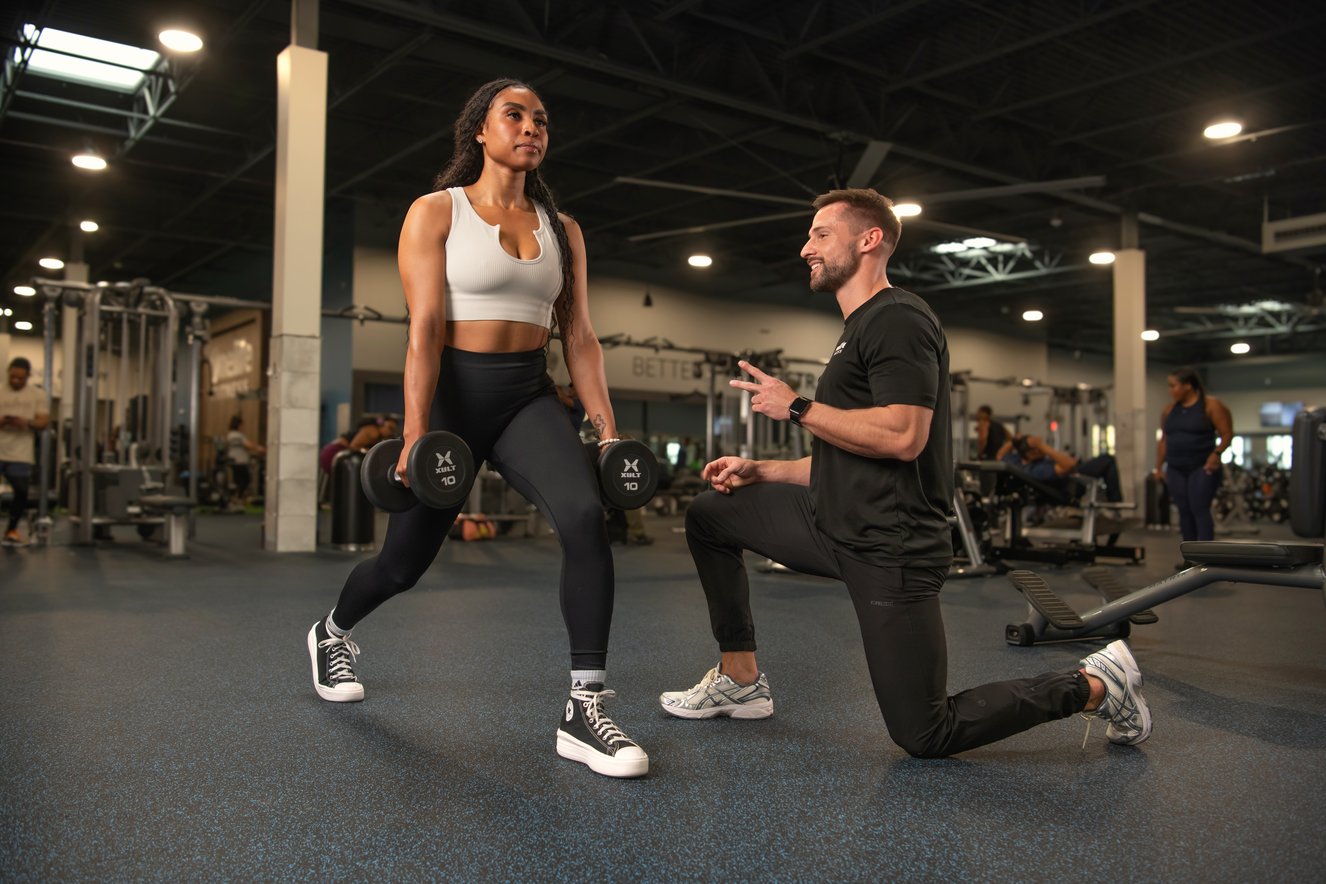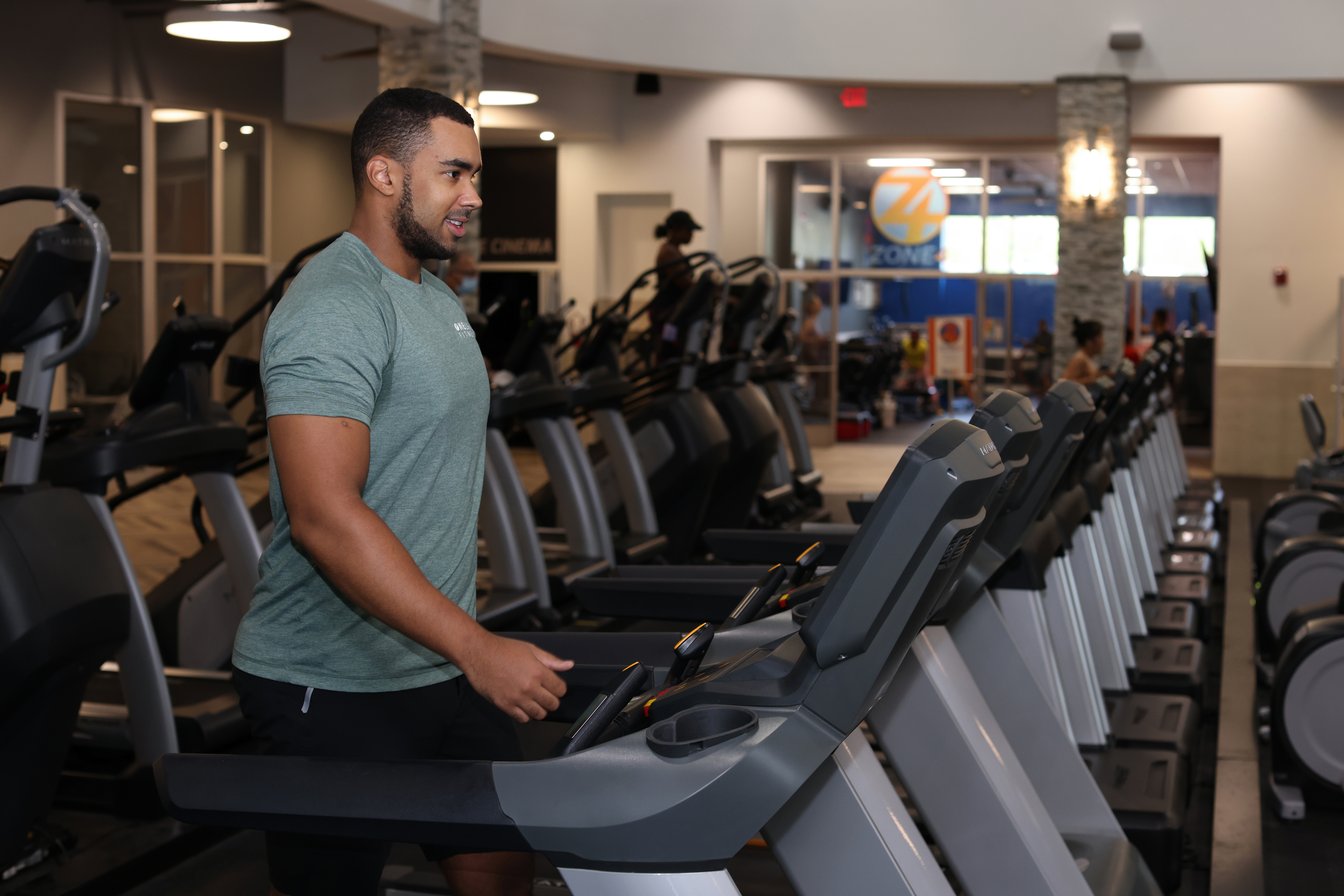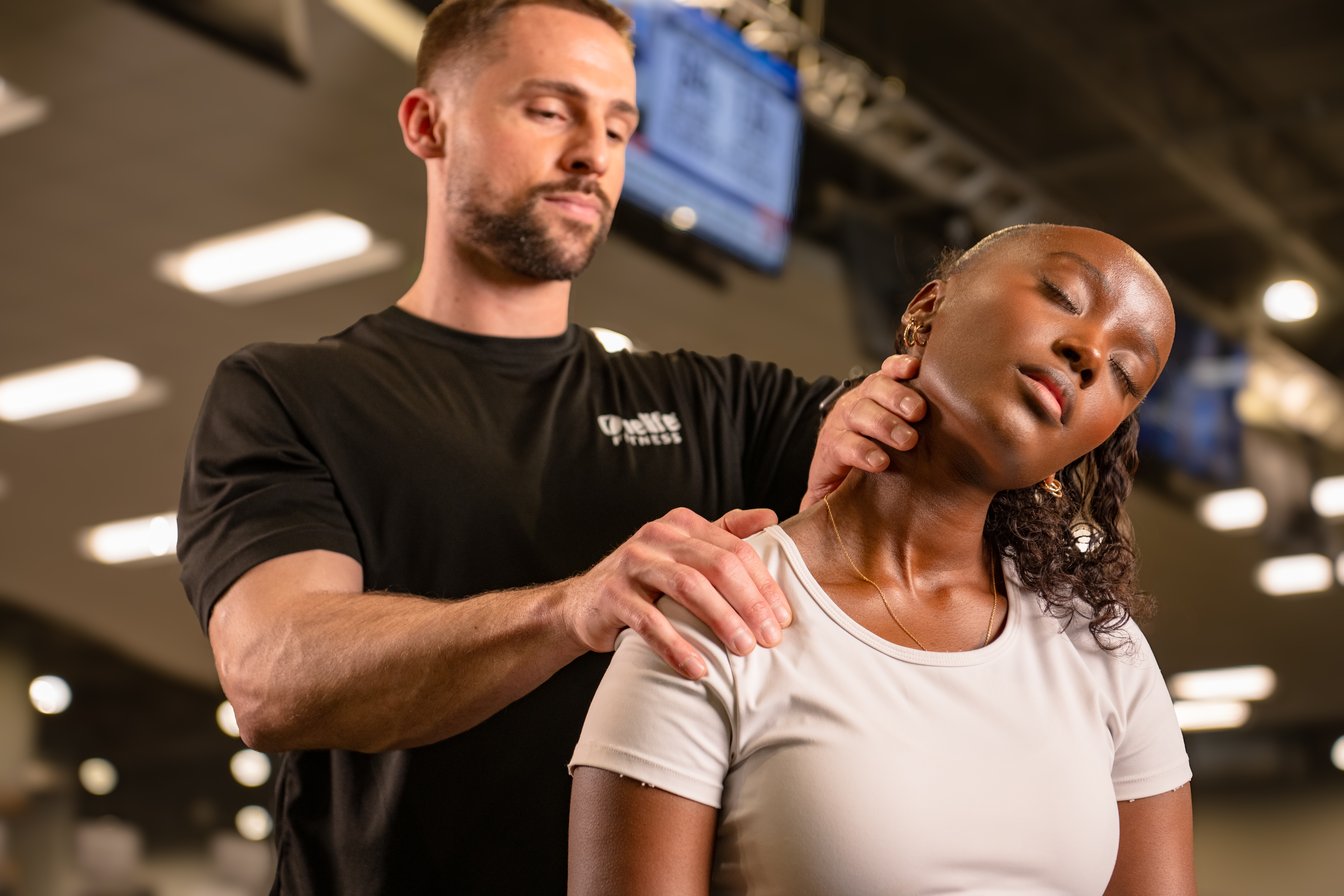Training for Marathons: Tailored Programs at Our Gyms
Training for Marathons: Tailored Programs at Our Gyms
We all know that feeling when progress seems to stall out, and the road ahead feels too long – especially during first marathon training. Trust us, you're not alone in this; tens of thousands of us have faced that same hurdle.
But good news: we've unlocked the secret sauce—a specialized gym regimen designed to speed work to enhance endurance and amp up your strength.
In this article, we'll peel back the curtain on our innovative method for marathon prep that combines custom fitness plans with seasoned advice. Whether it's your first race or your fiftieth, stick around for insights that could revolutionize your approach and see you cruising past the finish line with ease and assurance.
Ready to work out? Get your FREE PASS from Onelife Fitness today!
Key Takeaways
- Our gyms offer customized marathon training programs tailored to individual goals and skill levels, including specialized plans by Dr. Jack Daniels for longer or shorter distances.
- Tailored programs are available for all skill levels, from beginners to seasoned runners, ensuring a comprehensive approach that aligns with every runner's unique capabilities and objectives.
- Selecting the proper marathon based on personal goals, experience level, lifestyle, location, climate, course type preference, crowd support atmosphere preference, and more is crucial.
- Various marathon plans tailored for different fitness levels, from beginners to advanced runners, are available at our gyms to help achieve specific race goals effectively.
Customized Marathon Training Programs

Our gyms offer custom training programs tailored to your specific goals and skill level. Our expert trainers will work with you to create the perfect training plan that suits your needs and helps you succeed in your marathon journey.
Dr. Jack Daniels' Custom Training Plans
We understand your unique journey and offer Dr. Jack Daniels' custom training plans to match your personal goals and fitness levels. With the innovative V.O2 mobile app at your fingertips, tailoring a plan to chase down your dreams of crossing the finish line becomes seamless.
Whether aiming for a 5K or gearing up for the entire 26.2 miles, Dr. Daniels' expertise shapes programs starting from 15 weeks leading to 24 weeks long, ensuring you get the proper build-up for race day.
Our custom plans are more than just schedules on paper; they're a roadmap crafted by running experts who know what it takes to boost performance while keeping those dreaded injuries at bay.
Priced between $69.99 and $99.99, these training blueprints are investments in achieving peak physical form as efficiently as possible—leaving no stone unturned in our quest to help you stride stronger and smarter towards that finisher's medal.
Specialty Training for Various Distances
Onelife Fitness training doesn't just stop at the classic marathon distance. We offer specialized programs for runners aiming to conquer various races, from the swift strides needed to train for a 5-kilometer sprint to the enduring long run pace required for 26.2 miles.
Each training program is also crafted with specific workouts geared towards optimizing performance and increasing speed, endurance, or both, depending on your chosen race length.
Tailoring our approach further, we ensure programs match your current running fitness level and progress as you do. The diversity in training includes long runs that push your stamina limits, interval training that sharpens your speed, and strength exercises designed to enhance running economy—all vital components tailored uniquely for 5km, 10km, Half Marathon distances, or any other goal you set.
Tailored Programs for All Skill Levels
We understand that everyone embarks on their journey from different starting points. That's why we've crafted diverse programs that align with every runner's unique capabilities and objectives.
Beginners can hit the ground running with our comprehensive 12-week program, designed to build endurance steadily without overwhelming fresh legs. Seasoned runners aiming for a new personal best in a shorter distance will find our specialized 8-week strength program fine-tunes performance effectively.
For those targeting specific race goals, such as conquering first-time marathoners 5km or shaving minutes off half-marathon times, we meticulously adjust training intensity, weekly base mileage, and volume to match your aspirations.
Each participant receives personalized attention to ensure they're not just prepping for race day but developing resilience and physical fitness for long-term health benefits. We foster an environment where flexibility in approach is harmonized with structured progression – everyone gets the right balance of challenge and support essential for confidently crossing the finish line.
Deciding on Your Marathon Journey

Selecting the proper marathon for your fitness level and goals is crucial. It's essential to understand the different distances and the required training timeline.
Set achievable goals that align with your current abilities and commit to a tailored training program at our gyms.
Picking the Right Marathon for You
Choosing the proper marathon is a crucial step in your running journey. We consider your personal goals, experience level, and lifestyle to ensure you find the perfect match.
- Tailor your marathon choice based on fitness levels and previous running experience to ensure the event complements your abilities.
- Consider the location of the marathon; if travel and budget are constraints, local races can offer a comfortable starting line without the stress of long-distance travel.
- Look at the time of year and climate where the marathon is held; align it with your preference for weather conditions to perform at your best.
- Evaluate the marathon's course - some runners thrive on hilly terrains while others prefer flat, fast tracks; choose according to your training style.
- Think about crowd support and race atmosphere; decide if you're motivated by large cheering crowds or prefer a more low-key event.
- Set clear goals for what you wish to achieve – finishing the race, setting a personal best, or simply enjoying the experience – let these objectives guide your decision.
- Research any specific rules or qualifying requirements for marathons of interest, such as Boston qualifiers for the Boston Marathon, which uses Dr. Jack Daniels' VDOT scores.
- Speak with more experienced runners or personal trainers at our gym who have participated in various marathons to gather firsthand insight and advice.
- Consider post-marathon events, like yoga or foam rolling sessions, that aid recovery when deciding which marathon aligns with your recovery needs.
Setting Achievable Marathon Goals
To set achievable marathon goals, consider the following factors:
-
Assess your current fitness level and running experience.
-
Evaluate your past race performances and training efforts.
-
Consider the time available for training before the marathon date.
-
Set specific and measurable performance targets based on personal capabilities.
-
Seek advice from experienced runners or coaches to determine realistic goals.
-
Plan progressively to improve speed, endurance, and overall race performance.
-
Customize training plans to align with individual strengths and weaknesses.
-
Adjust goals if facing challenges during the training period.
Understanding the Training Timeline and Cross-Training
First, remember that most marathon training plans are designed to span anywhere from 12 to 20 weeks, whether new runners or experienced runners. The duration of the marathon pace plan will depend on factors like your fitness level and the expert being followed.
- Each week of your training plan will include various runs such as intervals, hills, easy miles recovery runs, and a long run. The purpose is to gradually build up your mileage to at least 20 miles with recovery weeks and days of rest.
- It's vital for any reliable marathon training plan to include a prerace tapering period – a gradual reduction in mileage before the actual race day. Tapering helps ensure you're well-rested and ready to perform at your best during the marathon.
- If you're considering completing a half marathon or 10K before starting your marathon training, specific training plans are also tailored for those races. This can help prepare your body for the longer distance and adjust to a comfortable pace.
- Considering when to start your marathon training? Winter may be the right time, depending on the race date. For instance, if you’re aiming for a spring marathon in March or April, November through January could be an ideal period to commence pre-race preparations.
- Training puts much stress on the body while you train for a marathon. The body requires time to heal. Throwing in some cross-training before you begin to log miles after a marathon is an excellent idea.
Marathon Training Plan Selection
Choose from beginner to advanced marathon plans, specialty plans like Jack Daniels' Boston Marathon, and plans for breaking time barriers. Find the perfect plan tailored to your skill level and goals.
Read more about our customized training programs at our gyms!
Beginner to Advanced Marathon Training Plans
Here are the various marathon plans to suit your fitness level and goals:
-
Beginner Marathon Training Plan: A 16-week plan designed for those who can run at least 6 miles and work out regularly with a moderate to hard effort. It includes four easy running days, one long run, and two rest days.
-
Sub-4-hour Marathon Training Plan: For consistent runners looking to complete 26.2 miles at a 9:09 pace, this 16-week plan starts with a 10-mile week and builds up to a 48-mile week, with the long run maxing out at 22 miles.
-
Sub 3:45 Marathon Training Plan: This plan is for consistent runners aiming to complete 26.2 miles at an 8:33 pace over 16 weeks. It incorporates interval workouts and tempo paces throughout.
-
Sub 3:30 Marathon Training Plan: Tailored for consistent runners looking to complete the marathon at an 8:00 pace, this plan starts with a mileage of 32 miles a week and peaks at a 52-mile week, incorporating intervals, hills, and tempo.
-
Sub 3:15 Marathon Training Plan: Designed for an experienced runner who can run at a hard effort for over an hour and has completed at least one marathon with Yasso 800s, intervals, hills, and tempo efforts included in the training plan peaking at a maximum of 52 miles per week.
-
Sub-3-hour Marathon Training Plan: Our most advanced plan is designed for athletes seeking to run at an impressive marathon pace of around six minutes per mile throughout peak mileage that peaks at a maximum of fifty-six miles per week, emphasizing speedwork during long runs.
Specialty Plans, including Jack Daniels' Boston Marathon
We offer specialty marathon training plans tailored for various fitness levels and goals. These include options for the Boston Marathon, advanced marathon, and first full marathon training program. The workouts consist of three Quality Sessions each week.
Plans for Breaking Time Barriers
- Our training programs offer tailored plans to help you break time barriers and achieve your race goals.
- These plans include specialized workouts, such as intervals, hills, tempo runs, and long runs designed to improve speed and endurance.
- Each plan incorporates a structured approach to progressively increase your mileage and intensity to push past time barriers.
- The personalized training programs also focus on post-marathon recovery strategies to break time barriers.
- Our expert trainers guide pacing, mental strategies, and visualization techniques to help you overcome time barriers during the race.
Overcoming Training Challenges

Training challenges include adapting to missed training runs and injuries, addressing difficulties in training intensity, and staying motivated through challenges.
Adjusting for Missed Training and Injuries
We understand that missed training time or injuries can be frustrating. Based on our experience and the expert team behind our training programs, we have compiled a guide to help you navigate these challenges effectively:
-
Listen to your body: Pay attention to any signs of strain or fatigue to avoid potential injuries.
-
Consult with specialists: Seek guidance from our experts, who can provide tailored advice on adapting your plan for missed training or injuries.
-
Modify your intensity: Adjusting the intensity of your training sessions can help accommodate missed days while avoiding overexertion.
-
Incorporate recovery strategies: Include sufficient rest periods and active recovery exercises in your routine to aid in overcoming missed training days and injuries.
-
Flexibility in the program: Our plans emphasize flexibility, allowing modifications when needed without compromising your overall progress.
Addressing Difficulties in Training Intensity
When marathon training starts to feel too difficult, it's vital to reevaluate your approach. Consider rest days, pain levels, and mindset during your workouts. Pay attention to recovery efforts and be mindful of aching muscles.
If necessary, consider backing off on runs or dedicating more time to recovery. Adjusting the intensity of the training cycle may mean modifying your training plan, scaling back on the frequency or duration of specific workouts, or even incorporating more rest days into your schedule.
If you're feeling overwhelmed by the demands of marathon training, it's important to remember that some discomfort is normal when pushing your limits; however, if everything feels impossible, then adjustments are needed.
Marathon Preparation Tips
Ensure that your nutrition is on point during training, focusing on a well-balanced diet with plenty of carbohydrates, healthy fats, and protein to support your endurance running. Additionally, select the right gear and apparel for race day and have a solid post-marathon recovery plan.
Nutrition Advice for Training
Proper nutrition is essential for fueling runs and recovering well. Experimenting with fuel during training can help you find what works best for your body. Eating foods that restore muscles, strengthen bones, reduce inflammation, and contain antioxidants, vitamins, and minerals is vital for recovery.
It is also recommended to consume options such as bananas, oatmeal, bagels, honey packets, gels, and gummies during runs to maintain energy levels. Hydration is equally vital during marathon training to support performance and overall health.
Selecting the Right Gear and Apparel
When selecting the right gear and apparel for marathon training, consider the following:
-
Choose comfortable, moisture-wicking clothing that allows for a full range of motion while running to reduce chafing and irritation.
-
Invest in properly-fitted running shoes that provide adequate support, cushioning, and stability based on your foot shape and running gait.
-
Opt for technical socks that prevent blisters by wicking away moisture and providing additional padding in high-friction areas.
-
Wear a well-ventilated, moisture-wicking hat or visor to protect yourself from the sun's rays and keep sweat out of your eyes.
-
Select lightweight, breathable outer layers that can be easily removed during a run as the weather changes.
-
Consider wearing compression garments to enhance blood flow, aid muscle recovery, and reduce fatigue during long runs.
Recovery Strategies Post-Marathon
After completing a marathon, the body needs time to recover and heal from the stress of the race. Here are some effective strategies to help with post-marathon recovery:
-
Rest and gentle movement: A rest day is vital, but gentle movements like walking and light stretching can aid in flushing out lactic acid from muscles.
-
Stretching and yoga: Practicing gentle stretching and yoga can help improve flexibility, reduce muscle tension, and promote relaxation.
-
Foam rolling: A foam roller can help release muscle tightness and enhance circulation, aiding recovery.
-
Icing: Applying ice packs to sore or overworked muscles can relieve inflammation.
-
Compression boots: Compression boots can enhance circulation, reduce swelling, and speed up muscle recovery after a marathon.
-
Avoid quick return to running: It's important not to push too hard post-marathon; giving the body adequate time to recover is crucial for preventing injuries.
Conclusion
Enhance your running performance and build a balanced physique with our tailored marathon training programs. Our hybrid marathon program also combines bodybuilding-style and functional strength training, catering to runners of all levels.
Take the first step towards your marathon journey at Onelife Fitness.
FAQs
1. How do your gyms help with training for several marathons?
Our gyms provide tailored training programs to boost aerobic capacity and physical strength, including running, cycling, weight training, and pilates.
2. What kind of nutrition advice do you offer for marathon runners?
We emphasize sports nutrition by recommending a diet rich in macronutrients like carbohydrates from whole grains and micronutrients from vegetables, nuts, and legumes for energy and recovery.
3. Can gym training improve my running technique to prevent injuries?
Absolutely! Strength and conditioning exercises at the gym focus on building muscular support around key areas like knees to avoid common running-related injuries.
4. How important is Vitamin D in marathon training?
Vitamin D is essential as it supports bone health and is critical when engaging in intense physical activity such as marathon training.
5. Does your program incorporate mental preparation techniques?
Yes! Our programs promote a healthy lifestyle with positive mindset practices such as mindfulness and goal-setting to keep motivation high throughout the marathon training journey and process.
6. Who designs the workouts in these tailored marathon programs?
Expert trainers develop our workouts; some are inspired by well-respected figures like Hal Higdon, who brings proven methods for improving strength, endurance, and overall Marathon performance.
Contact Onelife Fitness for your FREE PASS and all our gym classes across GA, MD, VA, DC & WV. We look forward to helping you on your health and fitness journey!